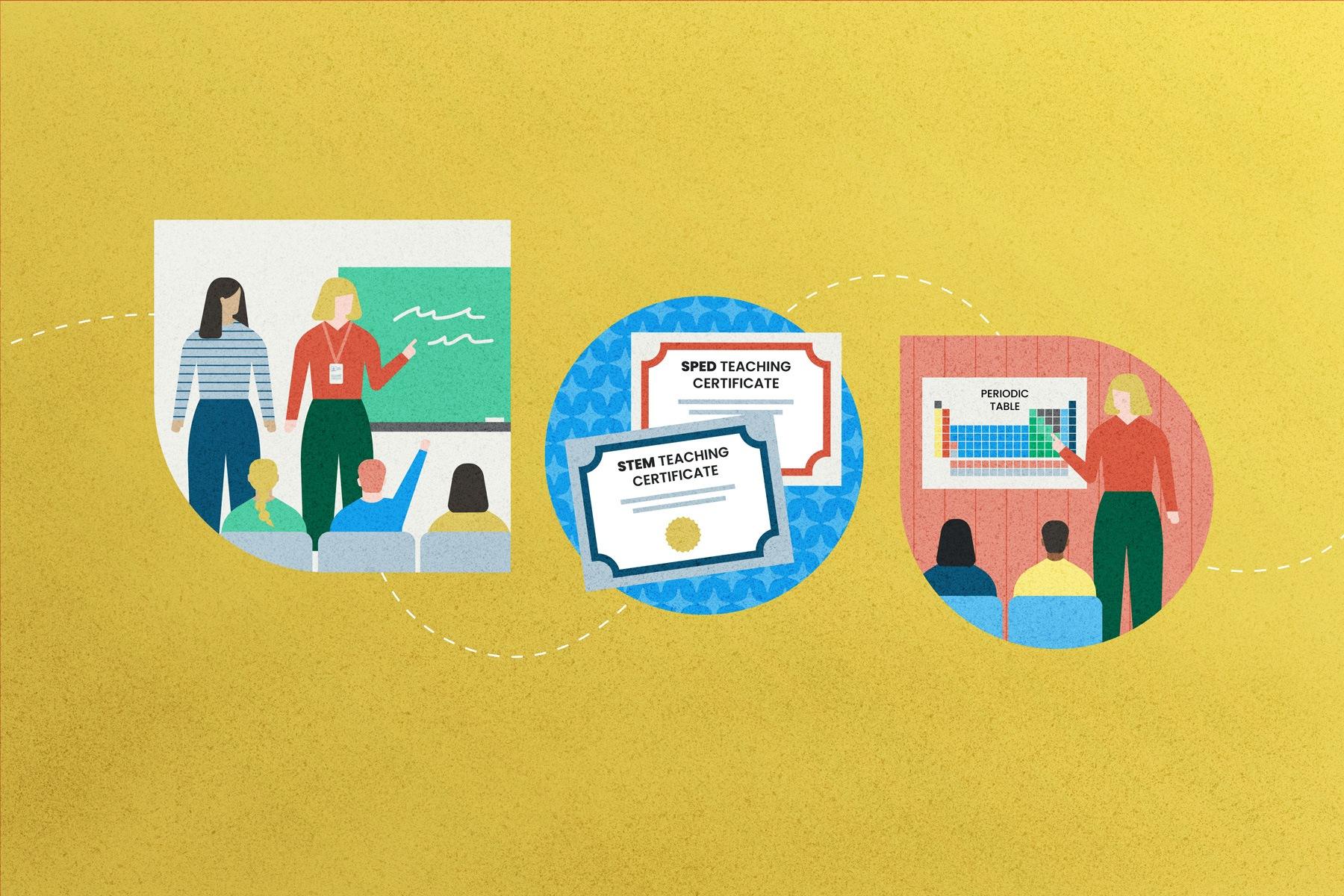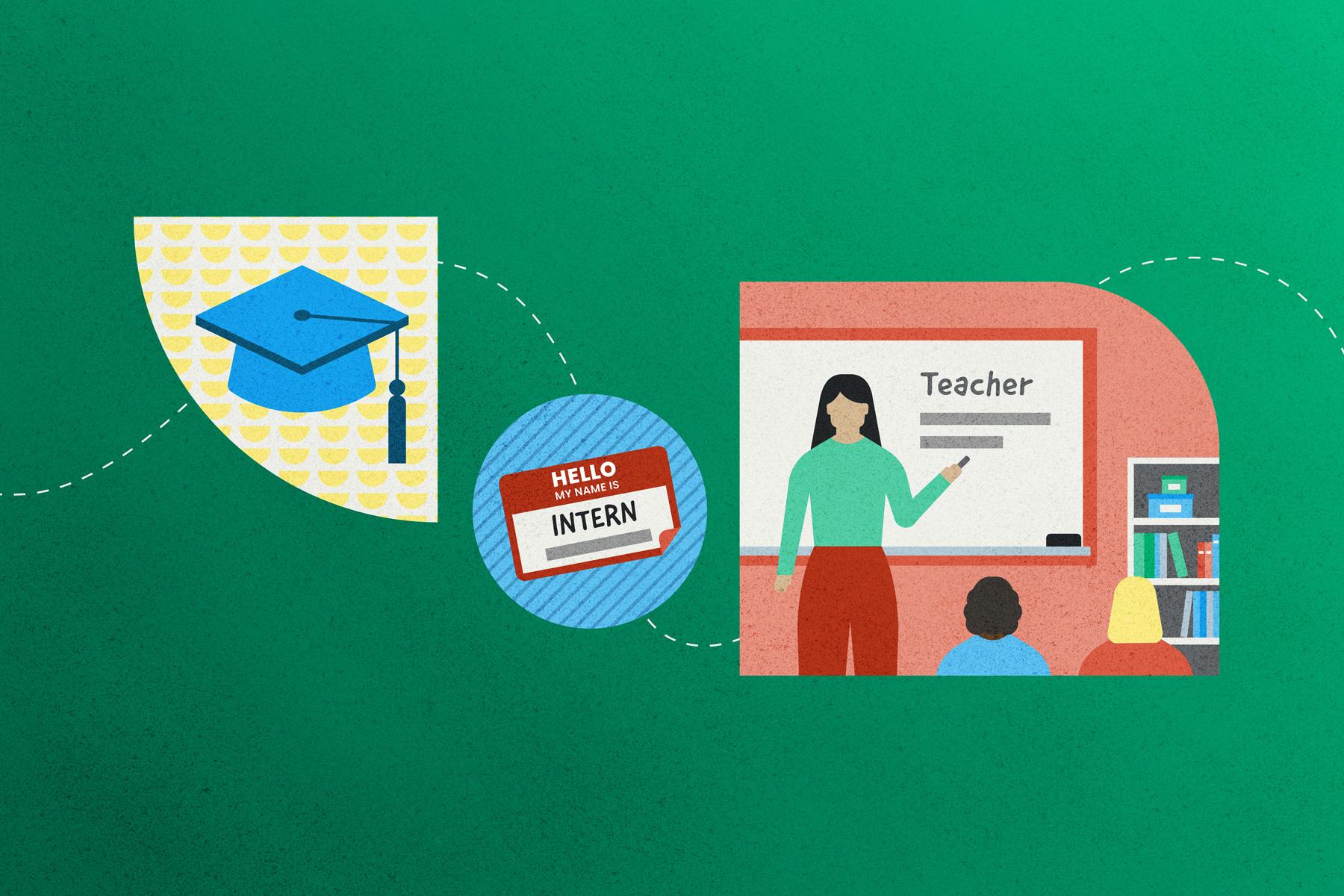If you want to earn a teaching certificate, you’ll need to know the requirements in your state. Our free guide will get you started. Read on, or click to download it!

Because certification requirements vary by state, subject and grade level, the first step is to figure out where you want to teach, as well as the grade level, subjects or specialty areas (like special education or bilingual education) you’d like to teach.
For most teaching certificates, you'll need at least a bachelor’s degree. If you don’t already have a bachelor’s, you can often earn your degree and your teaching certificate at the same time!
Some states require a master’s degree as well, but you may be able to work toward this while you’re already teaching.
For some skilled career and technical positions, like electrical engineering or health sciences, you may be able to substitute work experience for a degree.
You'll need to complete a state-approved teaching program to earn a teaching certificate. Your program will give you the tools you need to be successful in the classroom.
In many states, you can enroll in a teaching program as an undergrad, so you'll graduate with both a degree and teaching certificate.
Already have a bachelor's? Some teaching programs that offer a master’s degree or a certificate-only option. Many alternative certification programs are designed with working adults in mind, so you can work and get certified at the same time.
Check out our Program Explorer to look for programs in your state.
Depending on your state and teaching program, you’ll need to take one or more tests as part of your certification process. Here are the most common exams you might encounter:
If testing stresses you out, don't panic! Your teaching program can often help you prepare for any subject tests or teaching portfolios.
Once you’ve completed your program and passed the required tests, you’re almost a certified teacher! The last step is to apply to your state education agency for your official certificate. Your teaching program may need to give approval before you can apply.
You’ll also need to pass a background check. States might have additional requirements, depending on your grade and subject. Your teaching program should help you prepare for this final step.
As you complete your requirements, you’ll start looking for your first teaching job. Check out district job fairs, virtual fairs and recruiting events with your teaching program. In some cases, your program may have connections with school districts in your area.
National Board Certification is the most advanced certification that a teacher can receive. It's purely optional, but completing the rigorous and challenging certification process is a prestigious accomplishment and could lead to a higher salary, more professional opportunities and easier transfer between states.
When it comes to teacher certification, there's a lot to remember! That's why we made a free downloadable version of this guide, so you can keep the info handy.

Certification varies from state to state. To learn more about requirements where you live, click "Find Your State" and choose the state you’re interested in.

You may have heard the terms “alternative certification” or “alternative licensure.” If you already have a bachelor's degree, alternative certification can be a great option!
These are the most common types of alternative programs:

“When we think of careers that make a lasting impact on society, few can compete with teaching.”
—Dr. Phillip Burchfield, Executive Director, Mississippi Association of School Superintendents
Want to get notified about webinars, scholarship opportunities, certification updates and more? Get on the list!